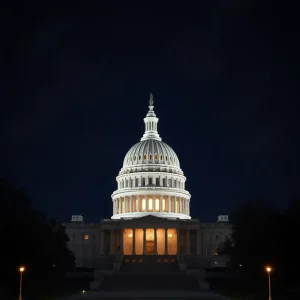Georgia Judge Strikes Down Six-Week Abortion Ban
In a significant ruling on Monday, a judge in Georgia declared the state’s six-week abortion ban unconstitutional. Judge Robert McBurney’s decision focused on the implications of the state’s Living Infants Fairness and Equality Act, better known as the LIFE Act, which was originally designed to restrict abortions after an embryo shows detectable heart activity, typically around six weeks into a pregnancy. This ruling is widely seen as a crucial step in the ongoing debate surrounding reproductive rights in Georgia and beyond.
Background of the Case
The legal challenge against the LIFE Act was spearheaded by the SisterSong Women of Color Reproductive Collective. They argued that the act violates a woman’s rights under the state constitution. In his ruling, Judge McBurney stated, “When a fetus growing inside a woman reaches viability, when society can assume care and responsibility for that separate life, then – and only then – may society intervene.” He emphasized that the strict six-week timeframe does not align with the rights granted to women regarding their own bodies and healthcare decisions.
This Georgia law had been put on hold until after the US Supreme Court made its controversial decision to overturn Roe v. Wade in 2022, which had protected a woman’s right to abortion for nearly five decades. Since that ruling, Georgia has become one of several states where significant restrictions on abortion have been enacted, with others instituting total bans on the procedure.
Reactions to the Ruling
Immediately following the ruling, the state of Georgia signaled it would challenge Judge McBurney’s decision. Kara Murray, the communications director for Georgia’s Attorney General Chris Carr, issued a statement affirming their belief in the constitutionality of the LIFE Act and announced plans for an appeal. Governor Brian Kemp, who signed the LIFE Act into law in 2019, expressed his disappointment, stating, “Once again, the will of Georgians and their representatives has been overruled by the personal beliefs of one judge.” He further highlighted the state’s commitment to protecting “the lives of the most vulnerable among us.”
Impact of the Ruling
Before the implementation of the LIFE Act, Georgia recorded over 4,400 abortions each month. However, this number has drastically decreased to around 2,400 per month since the law took effect in 2022. If Judge McBurney’s ruling stands, it could facilitate easier access to abortion services for people not just in Georgia, but also from surrounding states where such procedures are heavily restricted or banned altogether.
Political Implications
As the debate over abortion rights continues to escalate, the ruling has sparked a renewed focus on reproductive health issues in upcoming elections. Although there is currently no referendum slated for abortion rights in Georgia’s November elections due to existing laws, Democrats are actively trying to make it a focal point, particularly in races aimed at gaining seats in the state House.
Vice President Kamala Harris recently visited Atlanta to emphasize the importance of reproductive rights, framing the political landscape ahead of the elections. This visit, which came after reports of tragic incidents involving women who faced complications after taking abortion pills, highlighted the potential dangers that may arise from restrictive abortion laws.
Conclusion
Judge McBurney’s ruling represents a significant moment in the ongoing struggle for abortion rights in Georgia. As the state braces for possible appeals and further legal battles, many are watching closely to see how this will impact reproductive healthcare access in the region. Advocates for reproductive justice see this as an important victory, pushing toward what they hope will be a broader recognition of bodily autonomy and rights across the country.







